LENDANEAR UNDER THE COVERS
LENDANEAR UNDER THE COVERS
By Norman Warwick

The First Cut Is The Deepest is a song that was written and first sung by Cat Stevens, one of the earliest musical heroes of my Lendanear song-writing partner, Colin Lever. Stevens, of course, benefitted from at least five other artists also having a hit with a song he himself delivered as if bruised, battered but defiant. P.P. Arnold had the earliest cover hit with the song in 1967, both in the UK and America. Then Keith Hampshire charted with the track ten years later, before more internationally recognised performers like Rod Stewart in 1977 and Sheryl Crow gave whiskey streamed interpretations that took them into the top twenty. James Morrison then helped establish his career with the song in 2006 and another dozen artistes besides these named have made recordings of the great song.
Colin´s version on the night I heard him deliver it, for the first and only time in fact that I have heard him perform it, was magnificent. At times beseeching, at other dismissive and all the way through sung as if he was still feeling the stinging lashes of love. As far as I am aware he hasn´t yet returned to the song in these lockdown days, but when he does, and if he were to record it under the auspices of our producer, Phil Gallagher, Cat Stevens could soon be earning some more royalties.
Not that Cat is likely to need them, by the time he has finished re-recording his album, Tea For The Tillerman, to celebrate the fiftieth anniversary of its initial recording.
When it is released, I assume, under his newly adopted name of Yusuf Islam, the whole world, well, I´m talking at least ´bout my generation, will surely be intrigued at how different the songs on the album will sound. After half a century, how relevant might be songs such as Where Do The Children Play in these times we´re living in.
Although Colin has not yet (at the time of writing) posted on You Tube his version of The First Cut Is the Deepest, he has now delivered ten live-in-the-.living-room recordings on that platform that, given some studio polish and technology, would make a really interesting and eclectic compilation of songs that have influenced him over the years.
Here is the full playlist of an album I would call
Lendanear Under The Covers:
If You Go Away Dusty Springfield
The Way You Make Me Feel Michael Jackson
Moves Like Jagger Maroon 5
Summertime George Gershwin
Singin´ In The Rain John Martyn
Quite Leaving Me Alone Rosanne Cash
The Letter The Box Tops
Temptation Tom Waits
Para Lara Warwick & Lever
Little Love Affairs Nanci Griffith
And here are some details of the song selection.
Colin delivers a unique version of If You Go Away. a song that, notwithstanding its title, is so good it will probably never go away !
As recently as 2017 this song, by Jacques Brel and French-Canadian poet Rod McKuen, has been re-issued as the title track of a re-released album by Damita Jo, an artist who first recorded the song on vinyl in 1967.
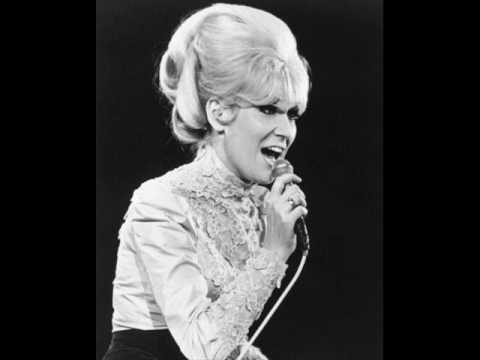
Colin´s rendition is, I suspect, an interpretation of Dusty Springfield´s recording of the track from her own 1967 album, Where Am I Going? Dusty could steer us across a stormy sea into safe harbours, and she did just that on her recording. Colin´s version, too, seems to find peace.
The song calls for him to parlez francais, something I first heard him do on our own song, One More For The Road, all about the caprice of the roulette wheel or the turn of a card. I handed Colin the lyric on completion and he came along to the next Lendanear rehearsal, and sang the chorus in French, which was bloody good because I´d written it in Lancyshire !!

Of course, Scott Walker famously recorded an album of covers of Jacques Brel, who himself also saw his work celebrated in a musical alongside the work of Kurt Weil, with the pair described in the production´s blurb as the two greatest composers of the twentieth century.
We have previously featured Weil´s work along Sidetracks & Detours so check out our full archives, and re-alerted to Brel by Colin´s You Tube of If You Go Away, we will shortly run an article on Brel´s music, as well.
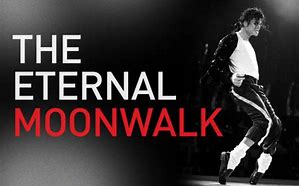
After Colin and I, as Lendanear, had recorded (three times on three consecutive albums) Doing The Spacewalk, out came Michael Jackson with all his moonwalk moves. We tried to hire him for some nights in the folk clubs we played, but his agent always told us he was busy. We reckon he was afraid of becoming stage struck in front of (quite often) crowds of more than fifteen people !
The Way You Make Me Feel was, therefore, one of the last songs I would have expected to emerge from Colin´s nights under the covers during lockdown. It is, though, a cracking version of perhaps the only song on Jackson´s Bad album, produced by Quincy Jones, in which the singer dropped his act of independence and bravado and spoke to the recipient of his lyrics of his inner fears. A more tender song than might be expected is expertly held here by Colin.

Although we occasionally produced some slapstick humour on stage (and not always intentionally) Lendanear was generally a pretty static caravan. Colin didn´t point his guitar into the air like Buddy Holly nor gyrate like Elvis and every time we performed even the most minimal of three-step waltzes to Moonbeam Dancer either me or the pensionable-age lady, selected from the audience to be Greta Garbo, would fall over ! Moonbeam Dancer was centred around the song Just The Way You Look Tonight, written by Irving Berlin and made famous by Rod Stewart amongst others. We did record the piece on both our Moonbeam Dancing and Theatre Of The Mind albums but it was as a piece of theatre in our live gigs that it always worked best.

Summertime, of course, has been given a thousand cover versions over the years: some of the happy and jazzy and others of deep blue hues. Its melody was composed by George Gershwin for the 1935 ground-breaking opera, Porgy And Bess, with Gershwin himself taking extra help from his brother Ira, and Dubose and Dorothy Hayward. It is probably quite widely-known that the first stage performance of Bess was given by a Latino American called Leontyne Price and that William Warfield played Porgy. Many of you may even know that Cab Calloway, then a very popular artist, played Sportin´ Life in a role that was written with him in mind. Colin has recently performed this song live and on You Tube, and actually his powerful voice is a perfect vehicle.
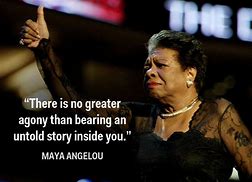
It has come as a surprise in researching this text, I must admit, that also on stage in the opening night of the opera was the subsequently famed writer Maya Angelou. The song itself is one of those rare compositions that elevates itself to stand alone above the context of its musical setting. It is much covered by blues singers, jazz players and folk musicians and is a trump card for those blessed with a golden voice, in much the same way as is Somewhere Over The Rainbow. Colin hits big notes as a performance and recording artist, but it is in the moments when he ´loses´ himself in a song and his voice sails downstream to faraway places that I most love his singing. This is just one of those songs.
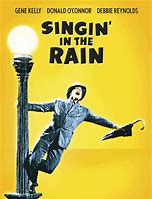
It has never been said that Lendanear had dancing feet, as I have alluded to before when speaking of Moonbeam Dancing. Don´t for one second think that your You Tube version of Colin Singin´ In The Rain, will have him running up drainpipes, leaping over dustbins or splashing through street-puddles. Any choreography he might add to the song is more likely to remind you of the Morecambe and Wise spoof rather than the Gene Kelly and Debbie Reynolds original. His rendition of the song, however, is as light-hearted and carefree as any other versions you might have heard. Singin’ In The Rain is a song with lyrics by Arthur Freed and music by Nacio Herb Brown, published in 1929. Although it is unclear exactly when the song was written, it has been claimed that the song was performed as early as 1927. Nowadays, Singin’ in the Rain is a shared title between a film and its lead song. Although it is unclear exactly when the song was written it has been claimed that the song was performed as early as 1927.
The song, of course, is a centrepiece of the musical film produced in 1952to tell a story that was ´suggested by the song´, according to the film’s title credits.
The song is listed as No. 3 on the American Film Institute‘s 100 Years…100 Songs.
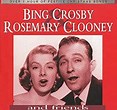
Even apart from Colin´s cover, though, the song has been associated with quite a list of famous and talented singers. For instance, Adam Faith recorded it on his debut album, Adam, in 1960 and in the following year Bing Crosby and Rosemary Clooney also recorded their own version. However, the interpretation perhaps closest to Colin´s heart might be that of John Martyn.
Iain David McGeachy OBE (11 September 1948 – 29 January 2009), known professionally as John Martyn, was a British singer-songwriter and guitarist. Over a 40-year career, he released 22 studio albums, and received frequent critical acclaim. The Times described him as ´an electrifying guitarist and singer whose music blurred the boundaries between folk, jazz, rock and blues.´
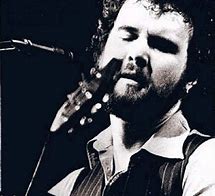
Martyn began his career at age 17 as a key member of the British folk music scene, drawing inspiration from American blues and English traditional music, and signed with Island Records. By the 1970s he had begun incorporating jazz and rock into his sound on albums such as Solid Air (1973) and One World (1977), as well as experimenting with guitar effects and tape delay machines such as Echoplex. He struggled with substance abuse and domestic problems throughout the 1970s and 1980s, though he continued to release albums while collaborating with figures such as Phil Collins and Lee ´Scratch´ Perry. He remained active until his death in 2009.
The song has also been covered by Maria Muldaur, when she wasn´t performing every midnight at the oasis, and David Mumford of Mumford And Son has also recorded the song on a solo album.
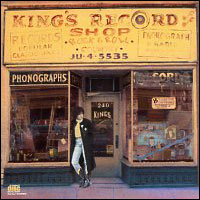
Of the songs Colin Lever has covered during the lockdown of the last few weeks, the one that, as a title on the page, least jogged my memory was Quit Leavin´ Me Alone. It was only when I listened to Colin´s performance that I remembered that this is a Belmont Tench song, released by Roseanne Cash on her career changing King´s Record Shop album in 1989. It might seem incredible I could not recall such an excellent song with such literary lyrics.
I can only plead that whenever I play that album I am distracted by what I consider to its two stand-out tracks of Runaway Train, the John Stewart song that gave Roseanne her first number one country song and the skippy Tennessee Flat Top Box which is her own homage to the guitar her dad was famous for playing throughout most of his career. So, thanks to Colin I shout to the song he has covered to Quite Leavin´Me Alone. Instead, I invite it to come and join us on the turn-table, with this collection of great songs that Colin has chosen.
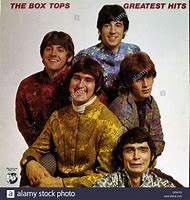
Like pretty much all my generation, I suppose, I grew up to a ´pop´ music soundtrack, so the first singles I bought included stuff like I Remember You by Frank Ifield, My Boy Lollipop by Milly and You Were Made For Me by Freddy And The Dreamers. My first introduction to rock came, if memory serves, in 1967 when I was fifteen, in the form of The Letter by American band The Box Tops. I can´t be absolutely certain of the chronology of the two singles, but I recall this as locked in my mind with Soul Deep and Cry Like A Baby, a similarly gruff vocal number by the same group with a very distinctive electric guitar echo effect.
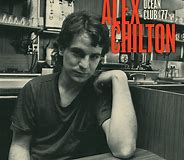
The Letter was a far chuggier song, with the voice of the lead singer Alex Chilton, that roared up the charts (though the song was typical of the era in its brevity). Of all The Box Tops songs Colin might have covered, there is no doubt that The Letter best serves his particular style.
Having listened to the preceding tracks I presumed when reading this title, that based on the evidence of all previous categorisation and obvious influences, this was not very likely to be Temptation as recorded by Heaven 17. Instead I expected to find that this would likely be faithful to the song published in 1933 by Nacio Herb Brown and lyrics by Arthur Freed. After all, that track was used in the Singing´ In The Rain film that Colin had referenced with a cover of its title track, and had been written by the same pair of collaborators.
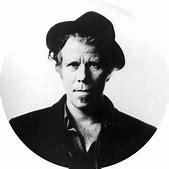
I was amazed to watch the You Tube video of Colin performing a Temptation very different in shape and form. Most songs written by Tom Waits can be described as being very different in shape and form from conventional music. Neither are they delivered in a recognisable form, often being barked out as if by a fairground attendant over the cacophony of the different music accompanying half a dozen different nearby rides. Tom Waits, and his partner Kathryn Brennan, nevertheless wrap in this garb extraordinary stories of characatures and grotesques and the minutea of lost loves and blur of faded dreams. They somehow find as they do here, lyrics of the most extraordinary descriptiveness and sudden anthemic choruses for the missing and lost. Waits grumbles and growls his way through his songs in the voice of a street dweller on a long, cold night but will then find a nickel to call a now long married old-girlfriend called Martha and mumble incoherently to her about ´those days of roses, poetry and proses.´ Or suddenly he will explain to us , with the drunkard´s awkward apology, that ´this piano has been drinking´ or just as dramatically sink into a beautiful melody or shuffle away to dance waltzing matilda with the homeless round the fires.
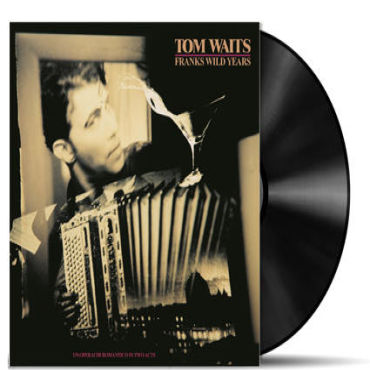
It was Peter Benbow, an occasional member of our duo Lendanear, who introduced me and Colin to the music of Tom Waits, with his own gorgeous version of San Diego Serenade on his third appearance at the folk club we ran for a few years in the UK. I had no idea at all until now that Colin had taken any notice, and perhaps he didn´t immediately rush out to buy existing Tom Waits´ albums as I did, but he pays his tribute here, with a wry rendition of a song from a seminal Tom Waits album, Frank´s Wild Years. (left)
However, not quite all the songs Colin has ´covered´ during the lockdown are genuine covers. We are currently trying to pitch some of our titles out into the jazz market, and we feel a song that might just adapt to that genre is a new song, not yet recorded by Lendanear, called Para Lara. This is a lyric I wrote for a young (21) friend of mine here on the island of Lanzarote.

muse for song
Lara and I are three generations apart and neither can speak a word of the other´s language. We have somehow built a courteous little friendship of talking about the weather when we meet in the street and laughing through our inevitable breakdowns in communication. The song and arrangement captures perhaps some of that hesitancy, and a jerky, jazzy rhythm would be appropriate so Colin has infused some Latino vibes. Watch this space.
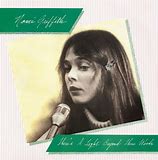
We close this window into Colin´s lockdown days, though, with one final cover. It is of a Nanci Griffith song and never, ever, did I think I would hear Colin singing one of her songs, though it is one of her half a dozen folkie numbers out of an ouvre of over a hundred country songs. A Little Love Affair is all sway and grace, and has a lilting quality of some of Lendanear´s own best material aspired to on tracks such as Last Boat Home and Songs For Sarah. Nanci´s version is ethereal and timeless and I can pay no greater compliment to Colin than to say he has captured that without wounding it.
The trouble with a cover, of course is that, if you pull it up too tightly, it can suffocate but Colin spreads his covers lightly and gently, lovingly and, even doing so in such a laid back manner, has now collated ten to a dozen songs which could just produce an album, even though it is only a few weeks since he stepped out of a recording studio for what we both felt might be the last time.
Now,…. just when some people think its all over, there might still be an album that caps the lot.
We used, even mis-used, cover versions only sparingly when we worked together as Lendanear, but hearing Colin´s current collection of songs by other people has also reminded me of some interpretations taken on by Lendanear.

So For instance when we performed live we often contextualised our own song Doing The Space walk by seguing into Bowie´s Space Odyssey or even John Stewart´s Armstrong.
Our club performances would also see me lounging in a deck chair with a spade on the floor and a newspaper in my hand. Yep, there I´d be, resting instead of digging an ´ole in the ground.
Then, along would come elf and safety in the shape of Colin Lever, guitar in hand, to warn me that ´You can´t dig there, dig it elsewhere and you´re digging it round when it s´posed to be square !´

Our live album, Theatre Of The Mind, included some covers such as a medley of Don´t Jump Off The Roof Dad, as also recorded by Tommy Cooper, and The Bloody Orkneys, a poem anonymously attributed and often delivered as a monologue by Captain Hamish Blair.

We also even managed to lure the audience that night at Leigh Folk Club to join us, beautifully, in our rendition of If You Want To See The General, the song that emerged from the trenches of world war 1 and has been covered by many artists, perhaps most effectively by Iain MacKintosh & Hamish Imlach.
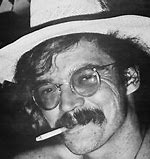
One of my favourite covers we did on stage, though, was of Terry Allen´s Gimme A Ride To Heaven Boy, not least because it always reminded me of when we had once been similarly hijacked by a hitchhiker. We stopped on the way to ask directions to a club in Nantwich and telling us he was going that way he jumped in and an hour or so later he had taken us so far out of our way that we started seeing signs for Norwich!
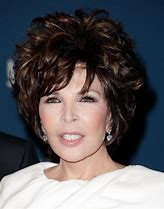
When Steph Bennett was part of Lendanear she and I did a piece of schtick in which we theatrically enacted her packing a suitcase and throwing me and it out as she shouted at me the verses of Carol Bayer Sager´s You´re Moving Out Today. (see left)

Colin and I recorded The Twentieth Century Is Almost Over on our first album, Moonbeam Dancing, and it was also a song we loved to perform live. Written by Steve Goodman and John Prine, two great artists sadly lost to us now, the song was not only recorded by Lendanear but also two blokes called Willie Nelson and Johnny Cash but I´m not sure if they ever got anywhere really. Anybody ever heard of them?
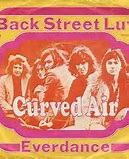
Probably the most dramatic cover we ever delivered, though, was on a recording for our Songs For Sarah album, an album chronicling the murder of a girl friend of mine which I only learned about in the press many years after we had lost touch. Colin introduced me to the song Back Street Love by Curved Air and we recorded it with sound effects of chasing footsteps, gunshots and police sirens.
And now, forty years later there is a whole new gathering of songs picked up by Colin, live and on You Tube. so why not visit our site at www.lendanearmusic and find out what you can Lendanear to under the covers.

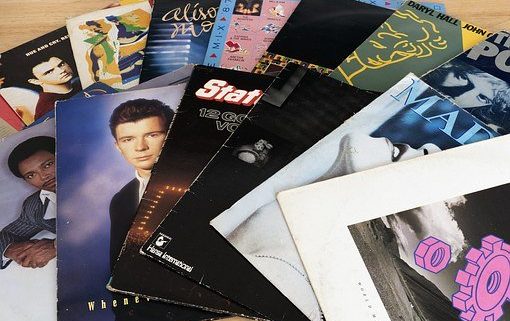


Leave a Reply
Want to join the discussion?Feel free to contribute!